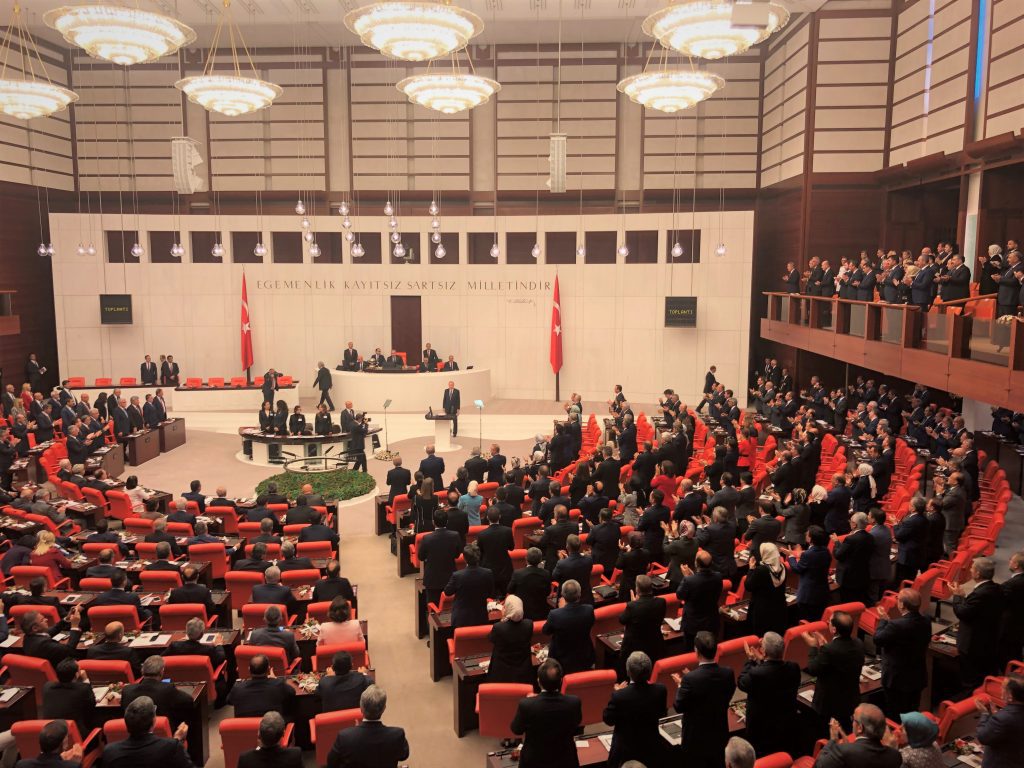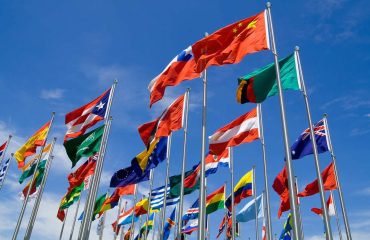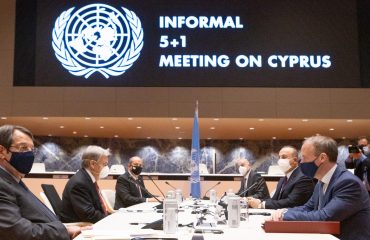

The new scenario spoken in the political backdrop in Ankara is based on the separate participation of the ruling Justice and Development Party (AKP) and its election ally Nationalist Movement Party (MHP) in the upcoming parliamentary elections. According to that scenario, the MHP will not nominate its candidate in the presidential election and will continue supporting the AKP candidate, President Tayyip Erdoğan. Political sources informing YetkinReport stated that this is one of the factors behind the statements of Erdoğan and MHP leader Devlet Bahçeli that they agreed to lower the election threshold from 10 percent to 7 percent.
For MHP, this scenario means proving its presence in the parliament in the next term. Bahçeli denied the claims that the idea of lowering the threshold to 7 percent was because he was not sure that his party will get 10 percent of the votes. But the 7% threshold will make the MHP feel more comfortable anyhow. That will also relieve other parties around the 10 percent threshold, such as the Kurdish-problem-focused Peoples’ Democratic Party (HDP) and center-right Good Party (IYI).
The scenario of entering the parliamentary elections separate from the MHP is also beneficial for the AKP. It is possible to collect the reasons under three headings. To disband the CHP-IYI (Nation) Alliance via IYI to attract the votes of the Kurdish voters and to attract the voters of the parties that cannot stay close to 7 percent for the time being.
Disbanding the opposition alliance:
On the AKP front, there is an opinion that not entering the parliamentary elections with the MHP can open new channels with the IYI. AKP lieutenants think that could cause the IYI Party to participate in the parliamentary elections separate from the CHP to prove itself. Akşener’s support for the mayors of Istanbul and Ankara, Ekrem İmamoğlu and Mansur Yavaş to not run for President is also a factor. However, the possibility that the deterioration of the alliance may change this picture.
Winning Kurdish voters back:
In the 2019 local elections in Istanbul, the AKP saw that the electoral alliance with the MHP backfired on Kurdish voters and even AKP supporter Kurdish voters. Until AKP’s Alliance with the MHP, more than half of the Kurdish voters have used to vote for the AKP, not the HDP. These were religious and conservative Kurdish voters. Backstage information is that the MHP also sees this fact and is convinced that the AKP if entered the elections separately for the sake of their People Alliance, can get votes from the Kurdish voters again. CHP’s reluctance to come side by side with the HDP is also an advantage for the AKP. HDP co-chair Mithat Sancar mentions the need for a “founding parliament”, in which all parties should take place in the work for a new constitution, implying that their doors are not closed to signs from the AKP. An important question here is whether the Kurdish voters will trust the AKP, which will continue to act with the MHP in the presidential election, just because it does not enter the parliamentary elections with the MHP. It is an important issue.
Attracting below 7 percent:
Some parties do not approach 7 percent in the current opinion polls. Those include Ali Babacan’s Deva, Ahmet Davutoğlu’s Gelecek, Temel Karamollaoğlu’s Saadet, and Mustafa destici’s Greator Unity Party (BBP); all on the right wing. If these parties enter the elections with the alliance of the People, or the Nation, they have the chance to send a small number of deputies to the Turkish Parliament. However, if they enter on their own, their chances are slim. The AKP circles calculate that entering the elections separate from the MHP may direct the voter base of these parties to the AKP again.
Does the account at home match the market? It is a separate issue.
Are those early election signs?
Quite the contrary.
If Erdoğan (with the support of Bahçeli) will submit the new election low with lowered threshold following the end of the recess of the Parliament in October, that means he wants to have the next elections with the new rules. According to Article 67 of the Constitution, changes in the election law can only be valid after a full year. That suggests that there will be no early elections before the autumn of 2022.
Meanwhile, Erdoğan says he will submit a new Constitution draft to the Parliament in the first months of 2022 if Erdoğan and Bahçeli agree on it.
After those changes in the election laws, would Erdoğan want to include the HDP opposition in the constitutional amendment process? Thus, would he consider closing the gap of 24 deputies required to submit the Constitution to the referendum? And what will the MHP, which wants the HDP to be completely closed and all its executives and deputies banned from politics, say about this situation?
These are not even scenario factors, for now, just questions.
But as we said: whether the account at home will match the market or not is a separate issue.

